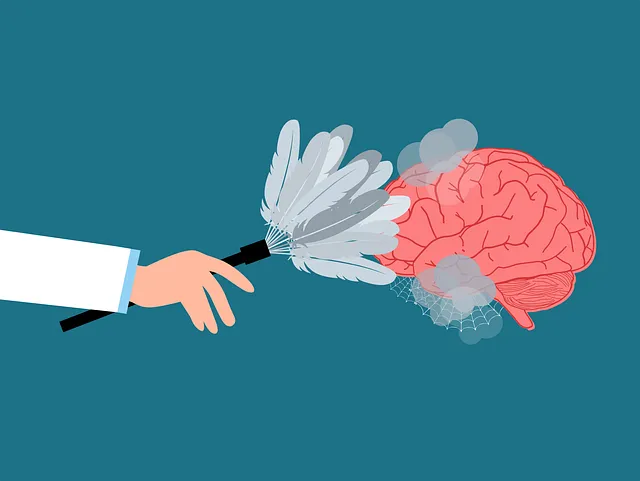Mental health care at Kaiser Permanente Psychiatry Services in Lafayette prioritizes patient safety through comprehensive risk assessment, integrating coping skills development, mindfulness meditation, and stigma reduction efforts. Their structured protocols improve patient care satisfaction by fostering a supportive therapeutic environment. The Kaiser Permanente psychiatry phone number Lafayette offers crucial support for professionals, emphasizing self-care, stress management, and immediate assistance via a dedicated helpline. Effective risk management strategies, including accessible communication and specialized training, empower mental health practitioners to better cope with complex challenges, ultimately providing more effective care. Case studies highlight the success of thorough risk assessment in managing depression, suicidal ideation, and volatile conditions, emphasizing the need for proactive care planning.
Mental health professionals face unique challenges, necessitating comprehensive risk assessment practices. This article explores essential aspects of integrating risk management into mental health care, offering a guide for practitioners. We delve into key considerations for evaluating professional safety and provide valuable resources, such as the Kaiser Permanente Psychiatry Phone Number, for immediate support. Additionally, we present case studies drawn from Lafayette’s mental health scenarios, highlighting critical lessons learned.
- Understanding Risk Assessment in Mental Health Practices
- Key Considerations for Evaluating Professional Safety
- Kaiser Permanente Psychiatry Phone Number: A Resource for Support
- Implementing Effective Risk Management Strategies
- Case Studies: Lessons from Lafayette's Mental Health Scenarios
Understanding Risk Assessment in Mental Health Practices

In the realm of mental health care, risk assessment is a vital tool used to identify and mitigate potential hazards within clinical settings. This process involves a comprehensive evaluation of various factors that may impact patient safety and well-being, particularly in sensitive areas like Kaiser Permanente psychiatry services in Lafayette. A thorough risk assessment helps mental health professionals anticipate and address challenges, ensuring a supportive and therapeutic environment.
By integrating coping skills development and mindfulness meditation techniques into their practices, healthcare providers can enhance patient resilience and promote positive outcomes. Moreover, addressing the Mental Illness Stigma Reduction Efforts is crucial for fostering an inclusive atmosphere where individuals feel comfortable seeking help without fear of judgment. Through structured risk assessment protocols, mental health professionals in Lafayette can navigate complex situations effectively, ultimately improving patient care and satisfaction.
Key Considerations for Evaluating Professional Safety

When conducting a risk assessment for mental health professionals, such as those available through the Kaiser Permanente psychiatry phone number Lafayette, several key considerations come into play. Firstly, evaluating the professional’s overall well-being and self-care practices is paramount. This includes assessing their ability to maintain healthy boundaries between work and personal life, which can be especially challenging in high-stress fields like psychiatry. Regular engagement in self-care practices, such as stress management techniques, anxiety relief exercises, and emotional regulation strategies, are crucial indicators of a professional’s resilience and safety.
Secondly, the assessment must delve into the individual’s coping mechanisms and support systems. Mental health professionals often deal with intense emotions and complex cases, so having robust strategies for managing workplace pressures is essential. This may include access to peer support networks, mentorship programs, or even therapy for professionals—a practice that fosters emotional intelligence and resilience. Ensuring these support structures are in place can significantly contribute to the professional’s safety and effectiveness in helping others manage their mental health.
Kaiser Permanente Psychiatry Phone Number: A Resource for Support

For mental health professionals seeking support or guidance, the Kaiser Permanente Psychiatry Phone Number in Lafayette offers a dedicated resource. This helpline connects practitioners with expert advice and care, emphasizing the importance of self-care and mood management within the profession. It serves as a crucial aspect of risk management planning for mental health professionals, ensuring they have access to immediate assistance when needed.
Through this phone line, professionals can discuss various challenges, from burnout prevention to coping strategies for stressful cases. It facilitates open conversations about implementing effective self-care routines, a vital component for maintaining better mental health in an often demanding field. This support system is designed to enhance resilience and promote the well-being of those dedicated to supporting others’ mental health.
Implementing Effective Risk Management Strategies

Mental health professionals are constantly navigating a complex web of potential risks and challenges. Implementing effective risk management strategies is paramount to ensuring both patient safety and provider well-being. One key approach involves integrating robust communication channels, such as readily accessible resources like the Kaiser Permanente psychiatry phone number in Lafayette, to foster timely intervention and support.
Additionally, fostering resilience through Emotional Healing Processes and Conflict Resolution Techniques can equip professionals with the tools needed to manage high-stress situations. The Stress Management Workshops Organization plays a vital role in this regard by offering specialized training and resources that enhance coping mechanisms and promote a healthier work environment. By adopting these strategies, mental health practitioners can better navigate risks, ultimately providing more effective care to their patients.
Case Studies: Lessons from Lafayette's Mental Health Scenarios

In recent years, case studies from Lafayette have illuminated critical lessons for mental health professionals, particularly regarding risk assessment and managing complex client scenarios. One notable instance involved a Kaiser Permanente psychiatry phone number Lafayette patient struggling with severe depression and suicidal ideation. Through meticulous risk assessment, therapists identified underlying social isolation and a lack of coping strategies, leading to tailored interventions that focused on building a support network and fostering positive thinking. This approach not only alleviated immediate crisis but also contributed to long-term mental illness stigma reduction efforts.
Similarly, another case study highlighted the importance of continuous risk monitoring in managing patients with volatile mental health conditions. By combining regular assessments with proactive communication strategies, professionals at Kaiser Permanente psychiatry phone number Lafayette successfully navigated a client’s sudden shift in mood and behavior. This experience underscores the need for rigorous risk assessment techniques and ongoing care planning, ensuring that mental health practitioners are equipped to handle diverse challenges and promote positive outcomes for their patients.
Mental health professionals play a crucial role in fostering well-being, but they also face unique risks. This article has explored essential aspects of risk assessment, emphasizing the importance of evaluating professional safety and implementing robust risk management strategies. The case studies from Lafayette highlight the value of preparation and resource utilization; remembering that support is available through organizations like Kaiser Permanente Psychiatry, which offers a dedicated phone number for assistance. By understanding these considerations, mental health professionals can enhance their practices, ensuring a safer environment for both practitioners and clients.






